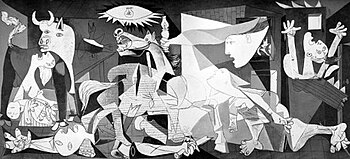Chapter 15: Nature |
| Nerstrand-Big Woods State Park-https://en.wikipedia.org/wiki/Nerstrand-Big_Woods_State_Park |
"Reading about nature is fine, but if a person walks in the woods, he can learn more than what's in books"- George Washington Carver
Within the humanities, nature has been a subject of romanticism. Nature is described as being free and natural for this is where humans use to roam before structured civilization. Some views on ature are differed ofcourse. Some have a more business insights and take advantage of natural resources with out giving back while there are those who call themselves environmentalist that are trying to support nature and promote protecting it because they believe it's been tampered to a point of no recovery. One person who promoted nature and found romanticism in it was Ralph Waldo Emerson. Emerson believed that we should " look for nature in ourselves" ( Janero & Altshuler , The Art of Being Human: The Humanities as a technique for living, 2011, p.476) and by doing this we could not only love ourselves but the beautiful natural world around us. Within biblical connotations, some environentalist believe that nature is not only a powerful force but one that god encourages us as humans to take care of. According to the quote above, to understand nature one should put themselves in it instead of learning from books or other sources. I agree with this quote because I feel as some people don't really understand just how impactful nature is and don't really expose themselves to it as much nowadays. Actually going out and putting yourself in nature is different than seeing photos of it on someone's instagram feed or pinterest board.
 |
| illustration from an edition of Jonathan Swift's "Gulliver's Travels" -https://www.britannica.com/topic/Gullivers-Travels |
"Study nature , stay close to nature. It will never fail you." -Frank Lloyd Wright
One theory concerning nature is the ' Decay of Nature Theory' that was heavily pushed by Sir William Temple, distant cousin of the author of 'Gulliver's Travels', Jonathan Swift. Temple himself had a very pessimistic view on things and saw some truth in deism, the philosphy that believed nature was like a clock that would never run. Instead of believing nature was unchanging , Teple believed the clock was running slowly and eventually nature would decay and life around it would perish. This is what inspired Swift when writing his book but with more of a focus on humans in the sense of his cousin. This focus on nature relates to the quote above talking about nature. If humans tried to understand nature and have a more optimistic approach to it then it wouldn't decay at the rate it is nowadays.
The urban attitude in nature expresses a somewwhat negligent view. In urban areas, nature isn't really accounted for by the people living in those regions and are usually ignored. Henry David Thoreau was a famous environmentalist who found this urban attitude to be not only toxic but saddening since these people probably have never seen the beauty in nature due to their daily life problems that distract them from it.
 |
| Native American Nature Artwork- https://www.tokkoro.com/2926321-native-americans-nature-artwork.html |
" The debate over whether or not humanity is contributing to global warming is over" - Ronald Bailey
In humanities , nature caan be portrayed as an awesome force. It's not just gentle and beautiful but something that can attack at any moment essentially. Native americans specifically somewhat understood nature as an awesome force. They have a deep spiritualrelationship with nature and believed their gods watched over different aspects of it. They used chants and songs to interpret the forces of nature around them and become closer to it.
Some incoveniences in nature are the ones caused by human involvement. Works like , 'The Fate of the Earth' expressed how because of human caused problems like global warning and climate change badly effected nature and endangered the living of humanity. These ideas were popular published during the 1980s but have become a big topic of today aswell for many, spreading awareness of these very real problems. The quote above sums up the idea of incoveniences in nature caused by humans by saying how it's become an obvious fact that humaity has contributed to the global warming problem. By saying this is something undebateable , it makes it more real in a way of how badly humanity has dug itself into a hole because of destructive practices.
Conclusion
In conclusion that humaities have expressed nature in very different lights. One way of iteroreting nature is through the environmentalist view where nature is the top priority and is fully understod in an almost a romantistic view for some. Another way of interpreting nature is by not associating with it and letting it take it's course which can be devestating , especially if it's just someone taking from natural resources and not giving back to keep nature in balance. No matter if one sees nature as being below humanity or if one sees nature as being superior, there's always different ways of interpreting nature.


:max_bytes(150000):strip_icc():format(webp)/Preocupation-With-Death-56a09d095f9b58eba4b2110f.jpg)








